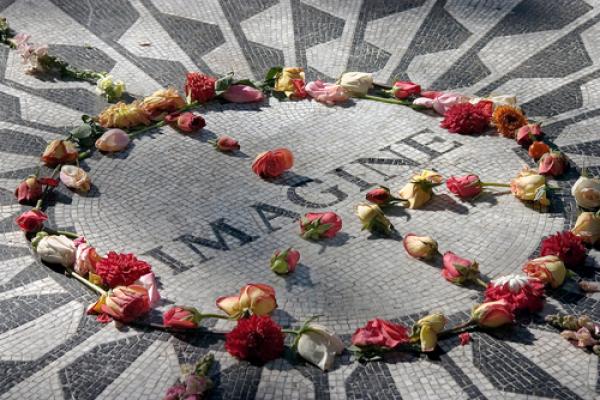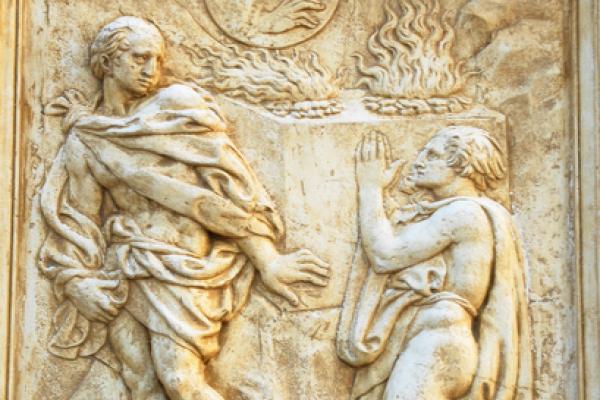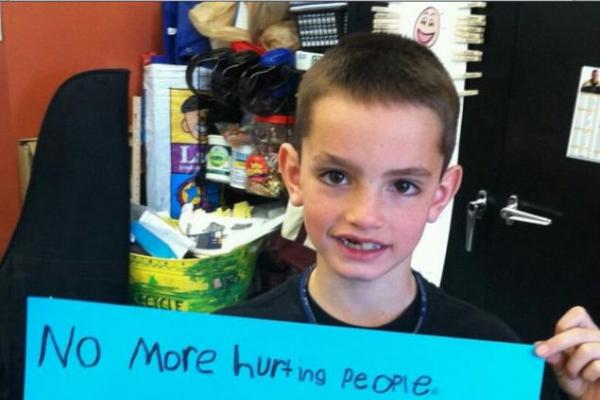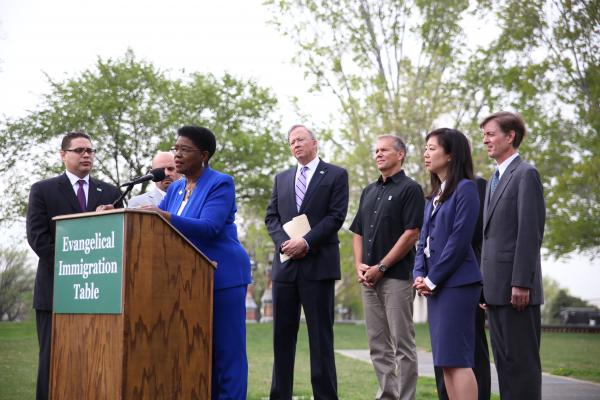The question for me as a teacher is not so much "What could have been?" as it is "What can be?"
I think of my fourth grader holding signs that say, "I am MLK," "I am Anne Frank," "I am Harvey Milk," "I am Daniel Pearl," "I am James Byrd, Jr.," "I am Matthew Shephard," and "I am Yitzhak Rabin." Though she cannot really be them, she certainly can take up their work and carry it on in her own life. She wants to become a doctor so she can help people live. With that spirit, she will help these martyrs live, too.
As a teacher, it is my job not only to help students imagine a world without hate, but also to help them find the tools and the heart to build it.
It’s one of the deepest and most enduring themes of the Bible; from Cain and Abel, Isaac and Ishmael, Esau and Jacob, and many more — the two sons, with jealousy, strife, and even murder between them, and almost always, the younger brother takes the glory – or the blame – for the acts of the older brother.
We see it again in the Boston Marathon bombings – the elder brother portrayed as cynical and brutish, while the younger brother, taking the blame, is shown as charming and innocent.
American Muslim leaders said they stand against terrorism committed in the name of Islam, trying to distance themselves from the suspects in the Boston Marathon bombings who were identified as Muslims with ties to Chechnya.
“We will never allow ourselves to be hijacked by this attempt, and we will not allow the perception to be that there is any religion in the world that condones the taking of innocent life,” said Nihad Awad, national executive director of the Council on American-Islamic Relations.
As the manhunt intensified in and around Boston, Muslim leaders convened a press conference Friday to denounce the attacks and to urge the media not to link their faith with violent extremism.
Two days after the Boston Marathon bombings, Boston Medical Center chaplain Sister Maryanne Ruzzo was checking on staffers who’d been caring for the injured when she received a page. A bombing victim wanted to see her.
The bedside was fraught with worry. A woman in her 30s had lost a leg to amputation as surgeons deemed it unsalvageable. Still suffering multiple injuries, she was now heading into surgery again, knowing she might wake up with no legs at all.
Ruzzo stood among the woman’s parents and siblings and did what she does best: listen. She heard their fears, including concern for the woman’s husband, who was being treated at a different hospital and who also might lose a leg to amputation. Then she prayed.
“Other people might not want to feel the pain and say, ‘Oh, it’s going to be fine,’” said Ruzzo, the Archdiocese of Boston’s coordinator of Catholic services at BMC. “We just try to be present and listen to them. … I prayed for the surgeons and the nurses.”
In a week when Boston hospitals cared for more than 170 bomb victims, staff chaplains were suddenly in great demand. They moved calmly from emergency departments to waiting rooms and employee lounges, offering a compassionate ear and much-needed comfort to anxious patients, family members and staffers.
Life is difficult. It can knock you down. Sometimes, an entire nation gets knocked down.
First it was Boston. Some mad man (or men) lays waste to one of America’s most hallowed sporting events — the Boston Marathon. Sidewalks that should have been covered with confetti were covered in blood.
Then it was the quintessential small Texas town of West. Populated by hearty Czech immigrants, folks in West worked hard in their shops, bakeries, and fertilizer plant until the plant exploded. A magnitude-2.1 on the Richter scale, witnesses compared it to a nuclear bomb. Dozens are feared dead.
In the nation’s capital, we had the bitter realization that something is broken that will not be easily repaired. A commonsense proposal that emerged from the Newtown, Conn., tragedy, background checks to prevent convicted felons and the seriously mentally ill from purchasing guns online or at gun shows, fell prey to Washington gridlock. None of the Newtown proposals — the ban on assault weapons, limits on the number of bullets a gun can hold or expanded background checks — could garner the 60 votes necessary to overcome a Senate filibuster.
Finally, there were the ricin-laced letters sent to a Republican senator and the president.
I woke up this morning, like everyone else, to the news of a shootout with one suspect in the Boston Marathon bombing and the ongoing manhunt for a second brother. Like many others, I’ve heard lots of misinformation over the past few days about whether officials did or didn’t have a suspect, whether they did or didn’t have them in custody, and so on.
“I heard someone dropped a bomb on Boston,” said Mattias, my 9-year-old son, over breakfast while I scrolled through the breaking news reports.
“Not exactly,” I said. “It was two guys. Two brothers who came from [another country] to go to college at MIT.” They put homemade bombs in and around trashcans by the finish line of the marathon.”
“Why?” he asked.
“I really don’t know.”
“Maybe they were angry about something, and they didn’t know how to talk about their feelings.”
“Maybe so,” I nodded.
“Did they hurt people?”
Hours after Senate Gang of Eight’s immigration bill dropped early Wednesday, evangelical leaders from across the country gathered at the Capitol to raise their voices for comprehensive immigration reform.
In the last two years, evangelicals have been a growing voice in the debate over immigration reform, hoping their votes — traditionally a bastion of conservative politics but recently broadening their engagement to gun violence prevention, poverty, and climate change — hold clout on the Hill when it comes to immigration reform.
The Evangelical Immigration Table, a coalition of evangelical leaders from across the political spectrum, gathered hundreds of people from 25 states for a day of action on the Hill. At the morning press conference, the Table representatives did not explicitly endorse or critique the Senate’s new bill. Instead, leaders pledged to "come alongside" any bill that supported their unified set of principals, namely immigration reform that: protects the unity of the immediate family; respects the rule of law; guarantees national security borders; and establishes a path toward legal status and/or citizenship for those who qualify.





